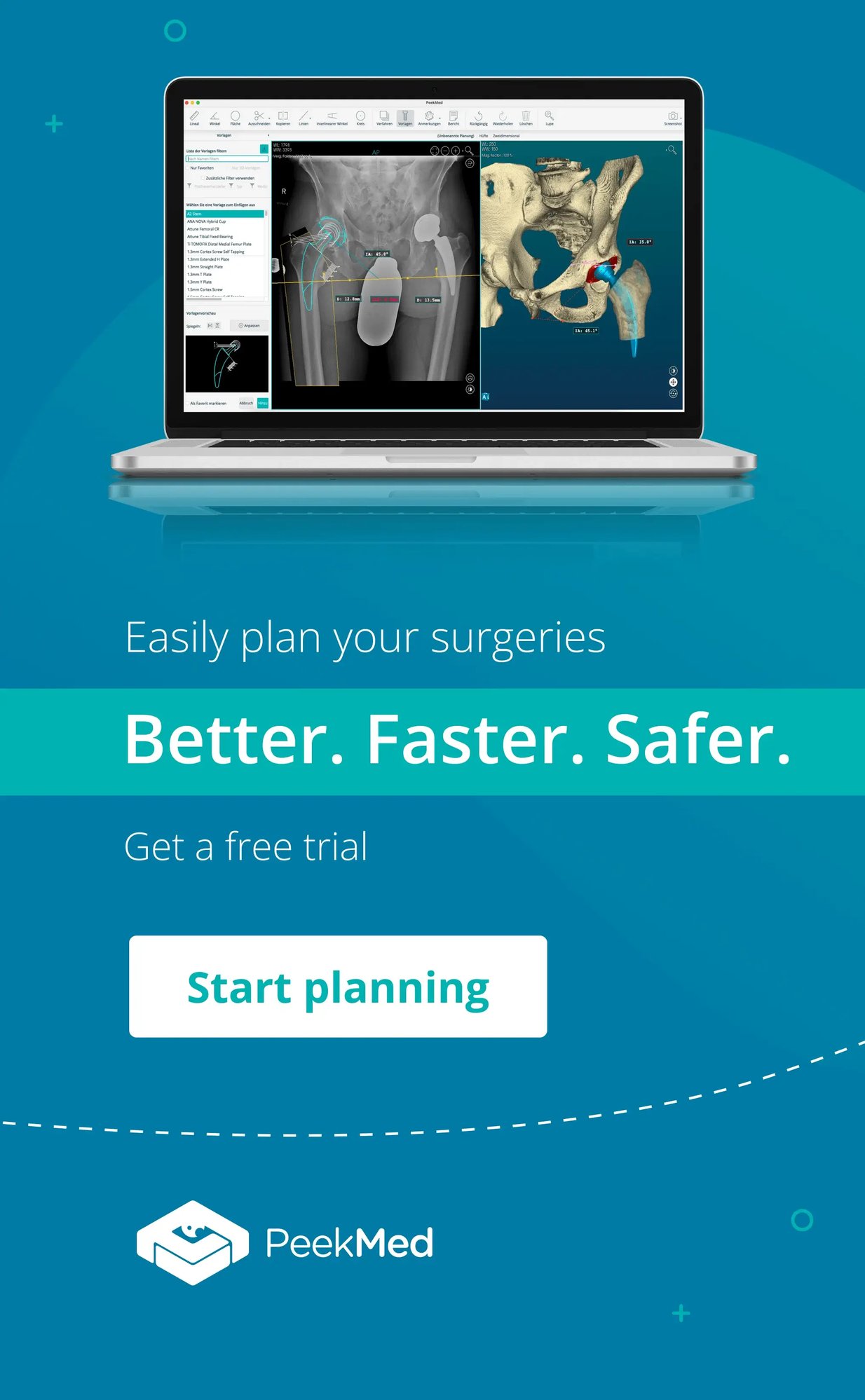PeekMed
As a surgeon, you’ve likely faced the challenge of balancing patient care with the administrative and diagnostic demands of modern medicine. Artificial Intelligence (AI) is transforming healthcare by enhancing efficiency, accuracy, and patient outcomes.
Let’s explore ten key benefits of AI in healthcare and how it’s reshaping the industry.
1. Enhanced Diagnostic Accuracy
AI-powered tools can analyze medical images, pathology slides, and patient data with incredible precision, often detecting diseases earlier than human doctors. For example, AI-driven radiology systems can highlight subtle abnormalities in X-rays and MRIs, assisting in the early detection of conditions like lung cancer, fractures, and neurological diseases. By leveraging AI in diagnostics, healthcare providers can make faster, more informed decisions, ultimately leading to better patient outcomes. AI-powered tools make a difference in surgery too.
2. Personalized Treatment Plans
Every patient is unique, and AI allows for a more tailored approach to treatment. By analyzing vast datasets, AI can identify patterns in patient responses to various therapies, helping doctors select the most effective treatment options. In oncology, for instance, AI-driven platforms can recommend personalized cancer treatments based on genetic markers, increasing the success rates of targeted therapies while minimizing side effects. In orthopedics, Artificial intelligence is transforming how surgeons do their job by improving clinical decisions.
3. Streamlined Administrative Tasks
Healthcare professionals spend a significant amount of time on paperwork and administrative duties. AI can automate processes like patient scheduling, billing, and electronic health record (EHR) management, reducing human error and freeing up time for direct patient care. AI-powered chatbots can also handle patient inquiries, appointment reminders, and follow-up instructions, improving patient engagement and satisfaction.
4. Accelerated Drug Discovery
Developing new drugs is an expensive and time-consuming process, often taking years before a medication reaches the market. AI accelerates this process by analyzing complex biological data, predicting how different compounds will interact with human cells, and identifying potential drug candidates. Pharmaceutical companies are increasingly using AI to streamline clinical trials and optimize drug formulations, making life-saving treatments available faster.
5. Improved Patient Monitoring and Wearable Technology
Wearable devices equipped with AI, such as smartwatches and biosensors, continuously monitor vital signs like heart rate, blood pressure, and oxygen levels. These devices alert patients and healthcare providers to irregularities, enabling early interventions for conditions like arrhythmias, sleep apnea, and chronic diseases. AI-powered remote monitoring helps doctors track post-surgical recovery and manage chronic conditions without requiring frequent hospital visits.
6. Optimized Resource Allocation in Hospitals
AI can predict patient admission rates, bed occupancy, and disease outbreaks, helping hospitals allocate resources more effectively. During the COVID-19 pandemic, AI models were used to forecast infection trends, optimize ventilator distribution, and manage ICU capacity. By leveraging predictive analytics, hospitals can enhance operational efficiency and ensure they are prepared for patient surges. Explore the role of Data Augmentation in Orthopedics.
7. Virtual Health Assistants for Patient Support
AI-driven virtual health assistants provide 24/7 support to patients by answering medical questions, offering medication reminders, and assisting with chronic disease management. These virtual assistants help patients adhere to treatment plans, reducing hospital readmissions and improving long-term health outcomes. For example, AI-powered apps can guide patients with diabetes on diet, medication, and lifestyle changes based on real-time glucose monitoring data.
8. Enhanced Surgical Precision
Robotic-assisted surgery, powered by AI, enables minimally invasive procedures with higher accuracy and precision. AI-driven surgical robots help surgeons perform complex procedures with enhanced dexterity, reducing the risk of human error. In orthopedic surgery, AI-powered preoperative planning tools, like those developed by PeekMed, allow for highly detailed 3D surgical simulations, improving accuracy and efficiency in the operating room.
9. Predictive Analytics for Patient Outcomes
AI algorithms analyze historical patient data to predict disease progression, readmission risks, and treatment outcomes. For example, AI can help cardiologists assess a patient’s risk of heart failure based on lifestyle, genetics, and previous health records. By leveraging predictive analytics, doctors can take proactive measures to prevent complications and enhance patient care.
10. Fraud Detection and Cybersecurity in Healthcare
The healthcare industry handles vast amounts of sensitive patient data, making it a prime target for cyber threats and fraudulent activities. AI enhances cybersecurity by detecting unusual patterns in medical billing, insurance claims, and patient records. AI-powered fraud detection systems can identify inconsistencies in billing codes, preventing financial losses and ensuring compliance with healthcare regulations.
The Role of AI in Orthopedic Surgery: How PeekMed is Leading the Way
At PeekMed, we harness the power of AI to revolutionize preoperative planning in orthopedics. Our AI-driven platform enables surgeons to automatically plan complex procedures including automatic templating, facilitating more accurate surgical planning and reducing operative times. By integrating AI into your practice, you can improve surgical outcomes, minimize complications, and enhance patient satisfaction.
AI is not just a technological progress — it’s a fundamental shift in how healthcare is delivered.
References
- Aidoc. (n.d.). 10 Benefits of AI in Healthcare. Retrieved from https://www.aidoc.com/learn/blog/10-benefits-of-ai-in-healthcare/
- Aidoc. (n.d.). Pros and Cons of AI in Healthcare. Retrieved from https://www.aidoc.com/learn/blog/pros-cons-ai-in-healthcare/
- National Institute for Health and Care Research (NIHR). (n.d.). Artificial Intelligence: 10 Promising Interventions for Healthcare. Retrieved from https://evidence.nihr.ac.uk/collection/artificial-intelligence-10-promising-interventions-for-healthcare/
- World Bank. (n.d.). Top 10 Ways Artificial Intelligence Could Impact Healthcare. Retrieved from https://pubdocs.worldbank.org/en/616861541428452112/Top-10-Ways-Artificial-Intelligence-Could-Impact-Healthcare.pdf
- Built In. (n.d.). Artificial Intelligence in Healthcare. Retrieved from https://builtin.com/artificial-intelligence/artificial-intelligence-healthcare



